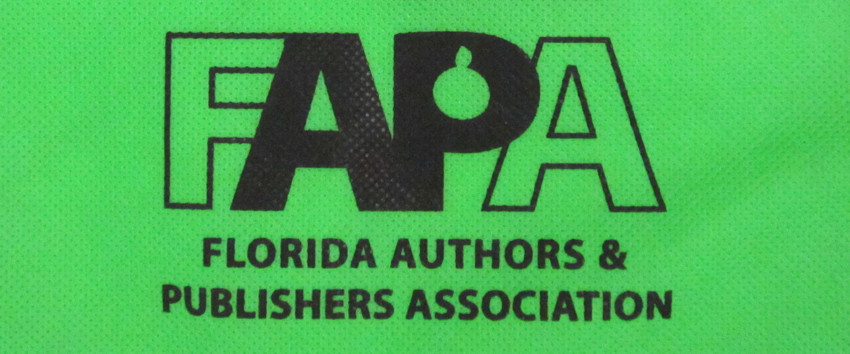A RARE FIND, Part 2! Indie author and publisher conference recap
Aug 22, 2015 | By: Stacy B. Davids

Below is the Part 2 (Day 2) recap of the fabulous 2015 Florida Authors and Publishers Association (FAPA) conference.
Session 5: Biggest Mistake. Presenter: David Essel, Author and TV/Radio Host
When pointing out common mistakes that authors and publishers make, it always helps when the speaker has high energy and a big, funny laugh. David said authors should plan on being responsible for 90% of their own book sales! You can't rely on publishers to do the marketing. However, he recommended that publishers provide training to authors on how to self-promote. He also encouraged authors to sell other things besides their books, such as consults and trainings.
Session 6: Capture Audiences: Techniques for Reading and Speaking to Groups. Presenter: Saundra Kelley, Professional (Oral) Storyteller and Author
Adding a theatrical component to the day, Saundra taught attendees how to read a story aloud with inflection and emotion in all the right places. She said your performance for others should follow an arc - with a beginning, rising and falling middle, and an end. She called it an arc, but since I'm a psychologist, I gathered she was describing a bell curve. When you want to really emphasize a moment when reading aloud from your book, be sure you have that section memorized, so you don't have to rely on keeping your eyes on the pages. She emphasized making lots of eye contact with the audience.
Session 7: The Plan that Launched a Thousand Books. Presenter: Tara R. Alemany, Aleweb Social Marketing
Tara spoke on Day 1 of the conference, and on Day 2, she delved further into marketing and social media. As I've mentioned before, her approach to achieving goals is systematic and scientific. Topics she covered included: Your vision for your book, projecting your sales, sales strategies, formats for your book (print, ebook, audio, workbook), marketing with your website, mailing lists, and more. My take is that Tara is like a human computer in her areas of expertise. She's definitely someone whose brain I'd like to pick about how to promote my books. Realistically, I don't think I could keep up with all that she has in her marketing arsenal; however, doing a fraction of it would be an improvement for anyone.
Session 8: Book to Screen: Turning Your Novel into a TV or Film Property. Presenter: Dete Meserve, President of Wind Dancer Films, Author, and TV and Movie Producer
What an exciting topic! Attendees of this session were sure paying attention. I loved Dete's bluntness on the reality of the film business. It's no surprise that getting a film deal is usually through favors and "who you know." Dete explained major elements that likely need to be in place for your book to be considered for a movie deal, including having a loyal readership, a marketable concept, and a distribution channel that's looking for the material you've written. Interestingly, comedies and dramas can be a hard sell. They have to "translate" well internationally. Adventure and action stories make up the top sales in movies. Dete also discussed what makes a great pitch. Hint: Focus on the "main" storyline plus the character's emotional reactions. No need to mention all the plot details, and don't be coy about revealing the plot twists. On the topic of rejection, Dete said, "It's not about you and your work, it's about the industry." I appreciated her supportiveness and respect of writers.
Session 9: Bookstores and Libraries: What You Need to Know. Presenters: Kim Britt, Owner of Bookmark It; Angie Roix, CBDM, Barnes & Noble Booksellers; and Nancy Giovanetti, Collection Development Librarian, Orange County Library.
Angie from Barnes & Noble said it takes about 6 weeks to hear back after submitting your book for consideration to stock. The main HQ decides whether to purchase books for the holidays, not the individual bookstores. Kim owns a tiny bookstore, Bookmark It; and she has a team of reviewers who help with deciding whether to stock a book. Nancy, an Orlando librarian, said if authors want their books in libraries, they shouldn't mail them in without prior communication. If they do, the book will be considered a donation. I found it interesting that before accepting an indie published book, Nancy reads Amazon reviews, but only those that are "verified purchases."
* * *
I thoroughly enjoyed this conference. It was pleasant, positive, and engaging. One difference I noticed when hanging out with fellow authors vs. indie author-publishers is that publishers actually exchange business cards, not only social media names. Also, during informal chats, authors focus on manuscript submissions, while author-publishers focus much more on marketing and the bottom line, sales. I know this makes sense since they have different roles. My takeaway: Authors would likely benefit from focusing on marketing potential at the earliest stages of writing their manuscripts. I love attending writers' conferences, but I have sometimes felt underestimated by editors and agents, whereas around author-publishers, I had the distinct impression that "the sky's the limit!"
Want to read the Day 1 recap of the FAPA Conference? Click here.
Stacy B. Davids, Ph.D. (@stacybdavids) is a psychologist, indie publisher at Upswing Press, and the author of the upcoming children’s picture book, ANNIE’S PLAID SHIRT. Find out more.

Leave a comment
2 Comments
Aug 22, 2015, 2:38:04 PM
Patti - What a comprehensive overview of the conference! Thank you for taking the time to share with everyone.
Aug 22, 2015, 1:03:38 PM
Stacy B. Davids - Thanks, Patti! I enjoyed attending the conference and meeting everyone!